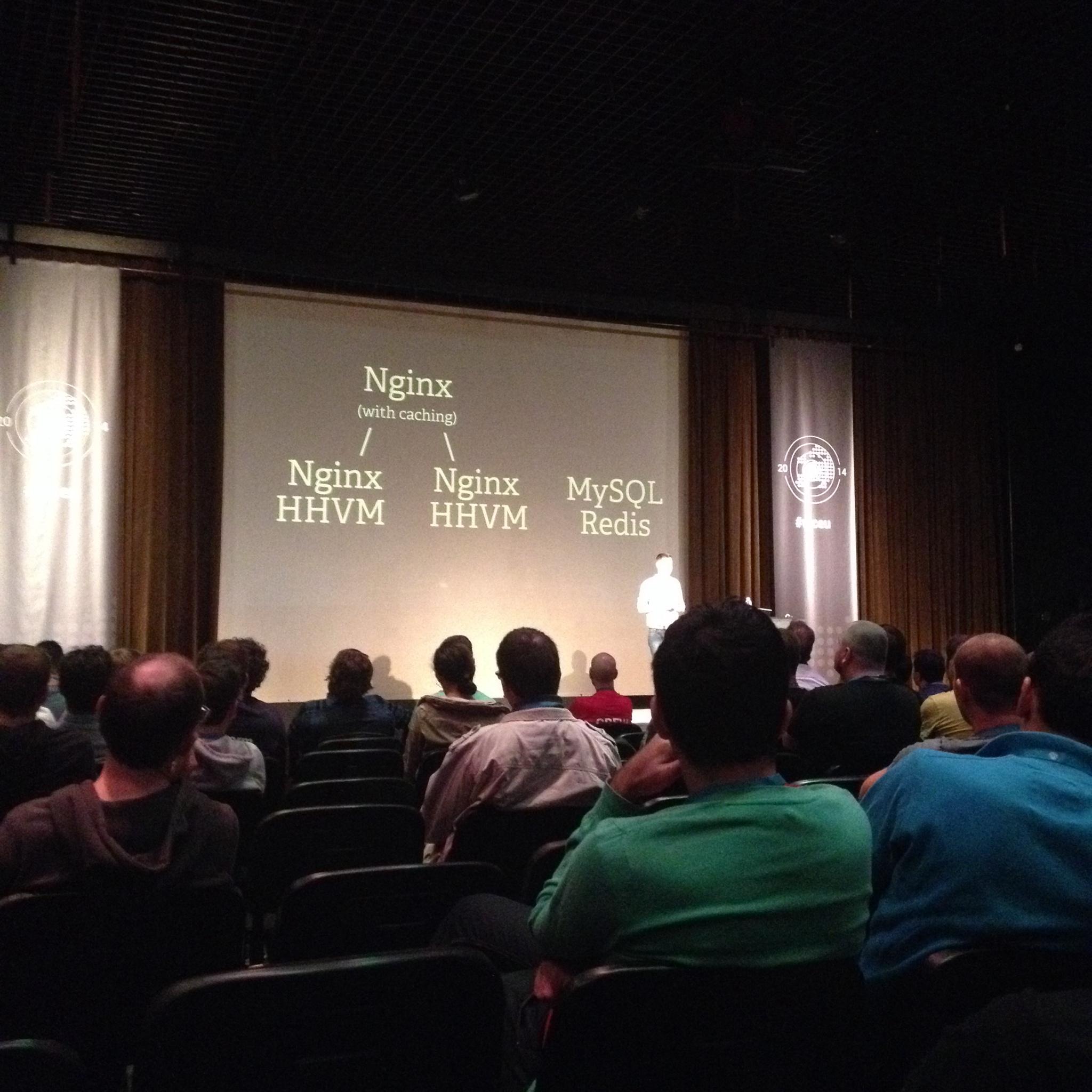I’m at WordCamp Europe in Sofia - taking rough notes on some of the talks
Mark Jaquith (@markjaquith) http://2014.europe.wordcamp.org/session/mark-jaquith/
- Why is performance important?
- It’s not about overall speed - it’s about the frustration of being interrupted
- Everyone hates Lag
- WP has a bad rep for speed
- no matter what wp core do, WP DB’s are getting bigger, lots of functionality, lots of plugins
- WP is dynamic - everything is built on the fly
- Why don’t we just generate static files? - No persistent caching in core. Pages are so dynamic: search results etc. Only a small number of pages can be cached
- For the purposes of this talk: speed = speed of download of just the html page (not css or other assets)
- 3+ seconds = EMERGENCY
- 1-3 seconds = Slow
- 100-250ms = fast
- <100ms = instant
- Many hosts don’t help with static caching
- Virtual server hosting - what to look for
- Are they going to be around for a while?
- What’s their raw performance - lots of people have done hardcore speed tests - easily googleable
- Value for money
- Tool support - provisioning scripts, auto backup
- Recommended: Linode, Digital Ocean
Web Server
- “Nginx is the best thing to happen to web servers ever”
- Apache approach - php is baked in. That means there’s an overhead for each request
- Nginx approach - can’t have php baked in. PHP-FPM runs php
- PHP 5.5 has significant performance improvements over previous versions
- HHVM - facebook project: transcodes php into machine code on the fly, with caching = crazy fast
- Might not be production stable - need monitoring to catch when it crashes
Database
- MySQL is not the only option: MariaDB, Percona
- HyperDB - project for providing a layer to manage lots of database instances
Caching
Page caching:
- Questions - who, what, how long. Answers: Anonymous???, front of site, minutes, maybe hours???.
- Nginx has a cache
- Varnish is another option, but is another moving part
- Plugins are tightly integrated with WP, but run in php so are much slower
Object caching:
- Recommend using Redis (Pantheon uses it)
- Memcached - used to be a recommendation. Restarting flushes the data - can cause massive spikes in load
- Mark’s wrappers:
- TLC Tranients http://bitly/tlc-transients
- Fragment caching: http://bitly/fragment-cache
The next generation stack

- Audience qu Hyper db - works with MariaDB & Percona?
- AFAIK yes
- My qu - can you make core use Redis for your object cache or is that just for your own caching
- Yes - you configure an object cache and core will use it to cache posts, taxonomies, a bunch of other things.
- Audience qu: What do you use for performance monitoring
- NewRelic: very expensive, but gives you amazing insights
*